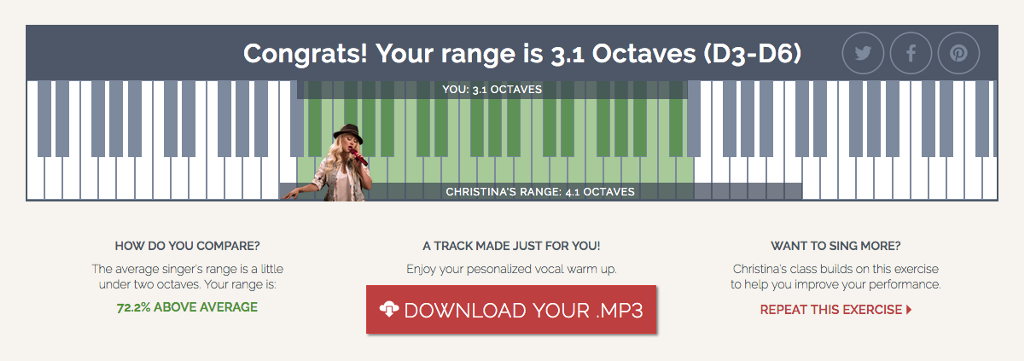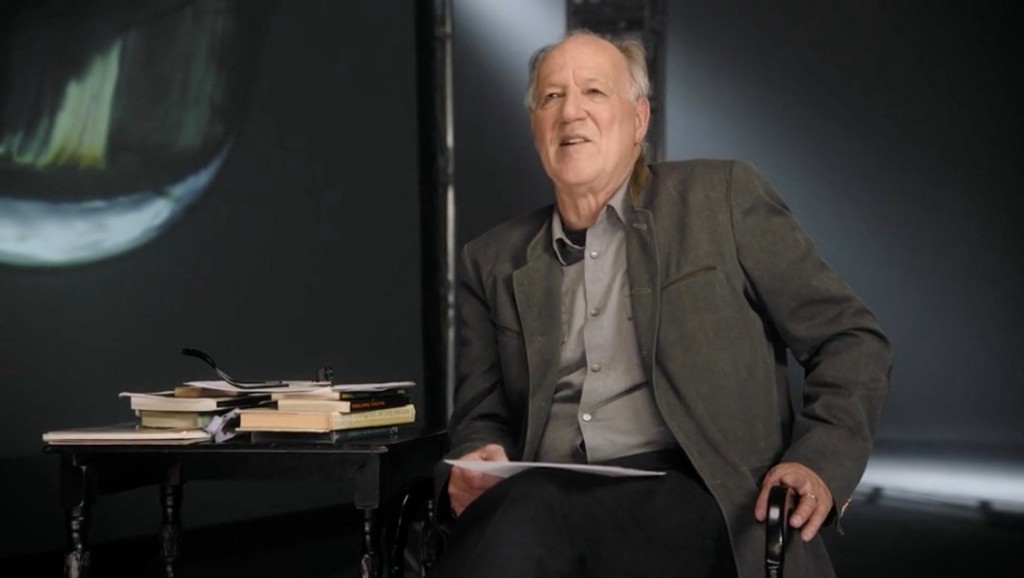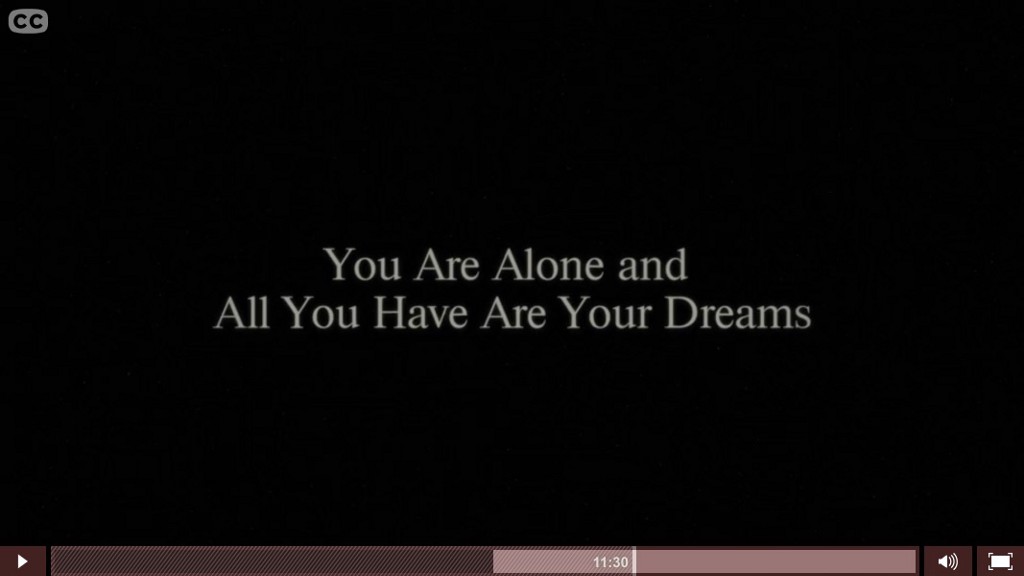Here Is Why There Were Crabs On The Subway
One explanation, at least.
“This weekend, a straphanger came upon an empty train car filled with dead crabs… While there’s still no explanation for why they ended up there, we have at least peeled back the onion a bit on a few aspects of the strange sighting — like the fact that crabs were still alive when they were first dumped there.”
— Gothamist, July 6, 2016
Photos: Did Anyone Forget Their Dead Crabs On The Subway?

It was late. Giant Supercrab was tired. She hadn’t been sleeping.

Maybe she was startled by upsetting news.

Positive news too can be a jolt.

With or without a specific shock, the week had been a bad one. Giant Supercrab was drinking more than she used to. The sleep deprivation made her irritable. Reb was in touch again, texting, wanting to have these long “how are you” conversations over text. Was she kidding? Too much work.




Christina Aguilera Does Not Believe in a Rule Book, But She Does Believe in a Workbook
Notes from her MasterClass on singing

Christina Aguilera loves singing very much. That is the biggest takeaway from her $90 MasterClass in singing, which comprises 23 video lessons and spans what I originally thought was 35 hours but was actually 3.5 hours, thank god. The other big takeaway is she curses!
To give you some background on Christina Aguilera: she is the singer Christina Aguilera with whom you are very familiar. She’s been famous since she was a child, and she was a judge on “The Voice,” and she probably has so much money that it’s crazy. Imagine if we had just a little bit of Christina Aguilera’s money. I know it’s crude, but still — imagine.
This is her MasterClass’s description:
Christina teaches you how to expand your range, find your voice, and master the techniques that have earned her six Grammy Awards. You’ll learn warm-up exercises, breath control, vibrato, her signature growls, and hear Christina break down her biggest hits. There has never been a singing class like this before.
Did I think I‘d be able to learn how how to sing and growl from videos online — videos unlike any other singing class videos that have existed since the earth was without form, and void, and darkness was upon the face of the deep?
Yes!

In the introductory video to Christina Aguilera’s MasterClass, she sits in front of a piano vocalizing to a soulful interpretation of her song “Ain’t No Other Man.” She goes, “mmMm, ooOooooh, yeah yeah,” and sings, “Ain’t no otha, ain’t, ain’t, no otha looovah,” pausing to explain that what you’re hearing is just what the chords are doing to her soul. This is a big thing of Christina’s: staying true to the music in your soul and singing your truth. Doing so demands you throw away your rule book, which is another big thing of Christina’s. “I want to impose on you the fact that I don’t believe in a rule book,” she says, immediately. Her rebelliousness put me at ease, as I am also a rebel.
Our shared rebellion is just one of many things I found out I had in common with Christina Aguilera over what felt like the 100 hours we spent together. Other things: we were both army brats, we both like flowers and candles, we both like room-temperature water, we both hate sexist double standards, and we both have incredible vocal ranges — far more incredible than the average singer’s vocal range.

YOU: 3.1 OCTAVES
CHRISTINA’S RANGE: 4.1 OCTAVES
Incredible. I could do without the rude tone, but I appreciate the information, and I am still impressed. (With myself.)
The range finder was unfortunately one of only two interactive singing elements in the course, the other of which I did not participate it because it involved recording a video and I have to have some boundaries. (Also, as part of that activity, you had to rate other people’s videos on a variety of different scales. I was very uncomfortable with this so I gave them all perfect scores even though, if I can be honest, they were not perfect.)
To find your range, you sung each note on the keyboard until you got to a note you “couldn’t” (or, a note the computer rudely told you you “couldn’t” even though it seemed like you were doing it to me) sing. If I could offer one suggestion it would be that there should’ve been more interactive tests like this so I could have achieved high scores on them and then taken screenshots to send to friends in order to show my friends how great at singing I am.
They’ll just have to believe me.
After every lesson there was a “workbook” that I almost never even looked at. I’m not gonna do a workbook. One thing I did do, though, is — well, every so often there would be this prompt:

There were comments below each video that were typically either meant to flatter Christina Aguilera or express deep personal sorrow, depending on the topic of the video.




As you saw in the prompt, you were periodically instructed to comment and interact with your fellow classmates, the latter of which almost no one ever did. Also you could “like” comments, which also no one ever did. So I “liked” a bunch of comments, because it’s always nice to see that someone likes your comment, and I added some of my own comments:


Yes, I did do that part. And you certainly can’t say that I didn’t.

Three things Christina Aguilera tries to avoid are:
- smoky environments
- loud environments where she has to strain her voice to have a conversation
- environments in which she feels uncomfortable, because “life is stressful enough”
Wow—three more things I have in common with Christina Aguilera. The “how not to strain your voice” section of the class, during which she lists these to-be-avoided things, betrays Christina’s Christina Aguilera-ness more than any other section. She gives a very detailed explanation, for example, of how not to strain your voice while you are trying to warm up for “one of the morning shows.” (Don’t chat with the hair and makeup people even if you want to, only do a few scales in the car on the way over, go to sleep very early, tea, honey.)
For another example, she explains that if you’re touring in Europe, smoky clubs are going to be harder to avoid. Sure, you want to hang out with your on-the-road family after your show, but you need to find a balance — maybe you only stay at the smoky European club for a little while, or maybe you suggest your backup singers and dancers, etc., hang out in your hotel room for more of a mellow night in. “Little things like that,” she offers. A good tip and certainly something to remember.
Another tip for how to keep from straining your voice is to scream less frequently at the horrors of your mundane life.

I wouldn’t necessarily say Christina Aguilera’s singing class was a “good” singing class. It didn’t really teach you how to be a singer as much as it taught you how to be the singer Christina Aguilera specifically, and only if you were already her.
This is not Christina Aguilera’s fault, though. Honestly, Christina Aguilera was wonderful. She said “fuck” once, and “shit” twice, and “bitch” once, and genuinely seems very chill and balanced and like she would be a good therapist if she weren’t a famous singer who sung “At Last” at Etta James’s funeral and got a standing ovation. She did as good of a job as one could of breaking down elements of her innate talent and ability, often conceding that she didn’t exactly know how to explain how to do the thing she was trying to tell you how to do. But she was very supportive.
Christina also doesn’t really know anything technical about music, and admits it often, which is comforting. At one point she’s talking about her song “Say Something” and she says, “This song is in 6/8. I don’t know what that means because I’m not a technically trained singer.” Hahah. I love it. At another point she’s trying to talk about how she doesn’t like pop filters and she says, “I don’t like these things. Poppers?” How Christina Aguilera does not know what pop filters are called at this point in her career is a mystery, and just one more thing I love about Christina Aguilera.
Also, this is slightly different, but early in the lessons she talks about how she’s loved Nina Simone’s version of “Ne Me Quitte Pas” since she was a young girl, and that it makes her feel deeply emotional “even though I don’t know what any of it means.” Christina Aguilera is a goddamn genius and refuses to so much as google anything she does not already know, thank you very much. She’s great. Don’t take this class, obviously, but I guess what I would like you to do is think of Christina Aguilera somewhat fondly the next time you think of her.
Also, it is so nice to listen to a person speak to you while you lie in bed with your eyes closed. My favorite thing about this class is that was how I listened to it. And then also the part where I learned about my incredible range.
How To Tell Your Ass From Your Elbow
Experts offer tips for something we assume you are dumb enough to need an article explaining

You promise yourself this time it will be different. This time you will be able to distinguish between two parts that, though utterly unlike each other, cause you confusion every time.
Then you look at both of them. That terrible sense of bewilderment overcomes your brain once again.
But all is not lost.
For anyone who has ever tried to tell the difference between their ass and their elbow (or if you are a New Yorker, you tell the difference between your fuckin’ ass from your elbow) at a supermarket, rest room, doctor’s office or anywhere else, here are some tips from experts for making that difficult distinction.
Identify your knee
That may seem counterintuitive, but data tell a different story, said Dean Myers, a former high school biology teacher who is the chief academic officer at Assbow, where he explores the future of rump/joint identification.
“People who have a hard time comparing these two disparate features of the body require a fixed point of reference to keep them from getting confused,” he said in an email. His research found all of that takes an average of 41 seconds before each person can actually understand that when they bang their funny bone it is not their ass that feels the pain, or that putting their elbow in the toilet does not help them eliminate waste.
“The knee is kind of like an elbow for your lower body,” he says. “If you start with that in mind you have a better chance of getting the other parts right.”
Throw a ball or another small object
When you throw something, you are extending your ulnar collateral ligament, the triangular band in the middle of your elbow, explains Dr. Ken Gazette, author of “The Human Body For Fucking Idiots.”
“Do you feel any motion when you’re extending your arm to toss the ball? That’s coming from your elbow,” he explains, “not your ass. You fucking moron.”
Look for female ass/elbow-havers
B. H. Sarsmen, an assistant professor of human services and psychology at Bailey Clown College in Baraboo, WI, suggested observing women around you to see how they handle situations in which awareness of the ass/elbow dichotomy was a necessary skill.
“This may seem sexist, but men are total imbeciles,” Ms. Sarsmen wrote. “In my experience it’s amazing they don’t walk into walls most times. If you’re having trouble telling your ass from your elbow you are probably a man, so maybe just step back for a second (but watch where you’re going) and see what the women are doing.”
Use the rule of twos
“You have two elbows,” says Dr. Gazette, “but only one ass. I tell my particularly slow students — and they’re all fucking idiots, so you can imagine what kind of brain-dead mouth-breathers I’m talking about here — to check the numbers. There’s a little rhyme I give them: ‘If there’s on each side, I have elbow pride.” There is also a rhyme that goes, ‘If it’s there on my bottom then elbows it’s not ‘em,’ but that is way too complex for these fucking morons. Again, we’re talking about people who can’t tell their asses from their elbows. They’re not geniuses.”
Beware of confusion
Even the rule of twos can bog a person down in complexity. “One time a student stood up and said, ‘But what about my two butts,’ meaning, it turned out, that he was counting each cheek as an individual ass,” recalled Dr. Gazette. “You can’t hit these people in the head with a shovel, and putting tape on the specific body parts with the names of the parts on them is a temporary solution because eventually they are directed to a shower and they wash the tape off. Oh my God, how fucking dumb do you have to be to need instruction on telling your ass from your elbow? What kind of idiot are you? What else do I have to tell you, how to pick the fastest line in the supermarket?”
Remember: A lot of the ass/elbow-distinguishing game is mental
To some degree, not being able to tell your ass from your elbow is all in your head. Research has found that, on average, people don’t know their ass from a hole in the ground either, but there is something about making a specific comparison to their elbow that complicates things.
The psychology of ass/elbow-distinguishing has found that identifying the body parts becomes harder when you are under pressure to declare which is which. Professor Sara McAfee of Princeton University recommended taking a deep breath, clearing your thoughts, and counting to ten before trying again, assuming you are able to count that high. (Professor McAfee’s tip: Use your fingers.)
Dr. Gazette has agrees with those points, but offers an additional solution. “Try sitting down,” he said. “Unless you’re a full-blown shit-for-brains who doesn’t have the sense God gave a goose, the odds are you’re sitting on your ass. There, I solved that mystery for you, you empty-skulled fuckhead.”
Soundscan Surprises, Week Ending 9/1
Back-catalog sales numbers of note from Nielsen SoundScan.

The definition of “back catalog” is: “at least 18 months old, have fallen below №100 on the Billboard 200 and do not have an active single on our radio.”
Back to school edition! My Morning Jacket sold a crazy number of copies of their 2005 record Z. This is presumably due more to their recent appearance at Lockn’ (previously known as Interlocken, I’m sorry to say), a music festival for jam bands like Phil Lesh & Friends, Tedeschi Trucks Band (actually good), and other post-Phish variants. The band also released a cool-looking special edition clear vinyl of Z, and reissued It Still Moves earlier this year. Still, that is a hell of a lot of records.
Juan Gabriel, the most famous Mexican singer-songwriter of all time, died last week at the age of 66. He celebrated a big 40-year anniversary in 2014, releasing several compilation albums of his number one hits and a live performance at the Palacio de Bellas Artes in Mexico City. He also released a duets album in 2015 that features Juanes and…Fifty Harmony?
The Willy Wonka Sountrack sold a few copies on the news of Gene Wilder’s death 🙁 What is The Dixie Chicks’ Wide Open Spaces doing on here? Trick question—why isn’t it higher? Anyone who doesn’t own this album should buy it.
- MY MORNING JACKET Z 17,294 copies
2. GABRIEL*JUAN MIS NUMERO 1… 40 ANIVERSARIO 8,950 copies
4. GABRIEL*JUAN LOS DUO 6,231 copies
42. WILLY WONKA & THE CHOCOLATE FACTORY SOUNDTRACK 1,897 copies
133. GABRIEL*JUAN MIS 40 EN BELLAS ARTES PARTE 1 1,168 copies
152. DIXIE CHICKS WIDE OPEN SPACES 1,087 copies
167. GABRIEL*JUAN MIS 40 EN BELLAS ARTES 1,040 copies
(Previously.)
Bat For Lashes, "Gypsy"
Summer’s still over.

You’re still tired, right? Still having a hard time adjusting to the fact that summer is over? Still absent-mindedly trying to figure out a way to make every week a four-day week? (Give up. Greater minds than you have sought and failed to find the solution to this challenge.) Still stuffing that pervasive sense of dread and despair deep inside you in the hope that if it stays down there long enough it will keep quiet so that you can get on with your life? The only thing I can tell you that might make it any better is that you’re not alone. Let’s just push through the next three days and at least we can get ourselves a little more time to recover. It’s not a lot, but it’s all I’ve got.
Hey, hopefully this Bat For Lashes cover of Fleetwood Mac’s “Gypsy” is still online by the time you come to it here, because it’s very good, and might just be the only thing to make you smile all day. I know how hard it is to find a smile this week, so I’ll keep my fingers crossed that it doesn’t get taken down. Good luck, and enjoy.
New York City, September 5, 2016

★★★★★ The sky was just less than blue, without quite being anything else. The dread hurricane was nothing more than a swaying and clattering of the blinds. The water in the forecourt fountain was running clear, and there were pennies in the bottom. By midafternoon, after the train ride up to the Botanical Garden, the sky had finally almost sorted itself into blue and white, with direct sun coming through. Dried leaves were falling infrequently as the tree limbs gently tossed. A trio of hawks turned in the sky. Outside the visitors’ center cafe window, as the children ate their potato chips, long dangling evergreen needles twinkled erratically like static on a CRT. By the wetlands there was no way to see where the duckweed on the mud gave way to the duckweed on the water. Flickers pressed themselves against the ground in the open. The sun went lower and raised from the grass a color so lurid as to shame or mock the chemists and designers of tennis balls. Two squirrels came clattering down a tree in a chase so violent it sent crumbs of bark flying to catch the light. After nightfall the temperature was perfected, but there was still no way to let in the breeze without the rattling and banging. A mosquito flew across the bathroom and landed on the mesh scrubber, where it could be swatted between two palms to a perfect limp and flattened mosquito-shape, then ground to a dark paste, in search of evidence of blood.
I'd Rather Get to Watch Only One New Episode of Twin Peaks a Year Than Have to Talk to Anyone About...
I’d Rather Get to Watch Only One New Episode of Twin Peaks a Year Than Have to Talk to Anyone About What I Think of the New Twin Peaks
And other answers to unsolicited questions.

“Which way do you think is better to watch TV shows? All at once or weekly?” — TV Fan Fran
I just watched all of the second season of “Narcos” on Netflix over this Labor Day weekend. I have no idea how long it took them to put together all the episodes and shoot them and edit them and all that. Probably a while. Chances are I won’t see any new episodes until next Labor Day weekend. I now feel empty inside. I re-upped with Netflix specifically to watch “Narcos” again. And I have burned through them quicker than I’ve ever eaten a box of Twinkies.
That is not to say that this new form of TV distribution is bad. It’s not. It’s very different than having to wait week by week to see if Tyrion has ascended the throne of Westeros yet. That space of time, one week or so, gives me plenty of time to work out all the angles in my head. To wonder when Tyrion and Jon Snow will have a love affair, making out desperately in the snow. Or if Arya will just kill everyone on that show eventually. Does the delay of a week heighten the largeness of the drama? Maybe. I devour these Netflix shows willy-nilly, never considering the long, cold Narcosless winter I will spend wondering what everyone in Colombia is up to.
Maybe it’s better for TV shows to save me from myself and my own chain-smoking habits? I had no time to consider any of the larger aspects of life in Medellín. I devoured episodes chicken McNuggets — the good, old, bad-for-you, delicious kind. I generally do not believe in delayed satisfaction. If you don’t get it right away chances are you won’t get it at all. I grew up with two brothers. If I hid a Snickers bar in the freezer for a treat later it would be gone. No one would fess up to it. I might as well have thrown that Snickers bar into a volcano.
I missed most of “Seinfeld” on first runs because I had to work at the bookstore most Thursday nights. Consequently, and fortunately, I missed all of those episodes of “Mad About You” as well. There is something about having to be in front of your TV on a certain night to catch a show that makes it kind of more fun.
The new test will be “Star Trek: Discovery.” The first episode will be on CBS in January and then episodes will come out on CBS.com or something. Will they be all at once? Or once a week? Or what the hell? My tendency would be to devour them all, leaving me once again in a world without new Star Treks. I’d say the best way TV shows could be released would be slowly, a few at a time. If there are 10 episodes in a season, maybe 2 or 3 at a time. So I can go nuts on them. And then wait for more. Maybe they can secretly release one or two overnight, so you wake up and have a few to chew on. Save me from myself, TV! Don’t let me eat you all at once!

“When I’m at parties I feel like people talk about bands and movies that I don’t know anything about and it makes me feel stupid and uncultured. What should I do?” — Party Dave
I hate parties, Dave. Usually I spend most of my time checking out people’s bookshelves. What kind of books do they have. It’s kind of like checking out the inside of somebody’s skull. They have all the Harry Potters but no Games of Thrones? I don’t make judgments, it’s just interesting to see what people read (or at least what they will admit to having read, like what’s on display). Talking to people is usually terrible. Small talk in particular is awful. I have no kids, no plans for my life five years from now, no hopes and no dreams. I’m as close to living in this damned boring moment as possible, and the next and so on. I only go to parties because I think the social consequences of not going will be even more severe than having to stare at someone’s bookshelves for an hour.
I usually just make up the names of bands, movies and books I like. Because people aren’t really paying that much attention. They will say, oh, I just bought the new Radiohead and it’s pretty great and I’ll say “I went to this Swingset Pinkos concert the other night at Dodge Theatre and they were amazing.” And this person will be quickly googling Swingset Pinkos and Dodge Theatre and find nothing and I’ll hopefully be speaking to someone else at that point or headed for the door or whatever. Don’t let anyone make you feel uncool. These are the 2010s, nothing is really all that cool.
If you get one of those really pushy people who try to catch you in lies you may have to actually buy swingsetpinkos.com, record some awesome songs and post them and then travel the country just to keep them off of your trail of lies. But isn’t it worth it to know something five seconds sooner than some jerk at a party you don’t really know and won’t even remember talking to? I say yes.
Jim Behrle lives in Jersey City, NJ and works at a bookstore and is also the lead singer of The Swingset Pinkos.
How To Be Werner Herzog
What A Six-Hour MasterClass™ Can (And Can’t) Teach You About Making Movies

I have found that when I tell people I love Werner Herzog, the sentiment is easy to misinterpret. It can sound like banal garden-variety hipster fandom of a public eccentric. It has become hard not to view Werner as a kind of self-caricature, a benevolent maniac with an unignorably comical speaking voice, the guy who does things like somehow get shot during an interview and then say, “It is not a significant bullet.”
That voice in particular does not allow you to forget for a moment his fundamental strangeness. His delivery is a fervent rasp, his pronunciations inhumanly precise. Each word seems to require profound concentration and effort. The emotional range of his voice is strikingly narrow, and yet it also lives in a place that I have never heard anyone else match, a surreal and cosmic combination of the matter-of-fact and the desperately urgent.
His accent at times is pure Dada, more Martian than Bavarian. He finds preposterous multi-vowel diphthongs in what should be completely straightforward monosyllables: “day,” “work,” “how,” “dream.” Through the dogged, loving overuse of his favorite words — “insipid,” “grotesque,” “grandiose,” “banality,” “enormity,” “bozo” — he has created his own genre of diction, a collection of English’s most vivid and piquant descriptors of the (usually awful) extremes of the human experience, words clustered at the poles of the extraordinary and the mundane, language that I think of as Werneralia.

I am probably writing a little bit in that voice because I have just listened to six hours of it, in the form of “Werner Herzog Teaches Filmmaking,” a twenty-six-video series created by MasterClass.
If you love Werner, as I do, then this class is pure pleasure. I had some specific hopes going in, and each of them was fulfilled.
Does Werner talk about work with animals gone awry, and does he additionally talk shit on the intelligence of those animals?
This is my favorite thing that Werner or any human being can possibly do, and he did it a number of times. The best instance was in Lesson XII (“Camera: Techniques”), when Werner described being bitten by one of the iguanas and/or desert lizards that Nic Cage hallucinates in Bad Lieutenant. “He bit me so hard, I cannot explain. It was like a vise. The crew was delighted and laughed like mad.” Werner then gazed, momentarily wordless, at the playback of the twitchy, expressionless lizards. “These creatures are so insipid, so stupid, so demented,” he reflected. “Look at the face of that iguana. I love that creature. It just can’t get any better.” He paused, utterly transported. “I love these moments. How beautiful.” And, scene. Please trust me that it was fucking amazing. In another lesson (“Locations”), he talked about an Amazonian hut he had to share with what he describes as “two hundred guinea pigs running over me,” which I invite you to stop, close your eyes, and envision before moving on to the next paragraph.
Does Werner tell some good stories about his monstrous, cartoonishly unstable star actor, Klaus Kinski?
Indeed he does. Over the course of his career, Werner voluntarily sought out the horrific mayhem of Kinski five different times, and that incredible and baffling psychodrama is a recurring theme in this class. My favorite Kinski story was an episode early on in their relationship: young Werner sits in a theater as a teenager and watches teenage Kinski’s portrayal of Hamlet. Kinski falls silent two and a half minutes into the play, having forgotten his lines; he then works himself into a violent rage, flings a burning candelabra into the audience, and concludes his performance by rolling himself up in a carpet and remaining there until the curtain falls. Thus begins a section entitled, “What’s On-Screen Is All That Matters.”
Another time, Kinski was screaming at, and “physically hanging off,” Werner because someone had brought Kinski lukewarm coffee on the set of Fitzcarraldo, in the Amazon — the subpar coffee was apparently because the crew was preoccupied with a terrible plane crash — and Werner describes silencing Kinski thus: “I went to my hut. I had a tiny piece of Swiss chocolate left. I came back. I stepped into his face, and I ate it. And that was too much for him. That was beyond him, and he shut up.” Watching this, alone in my office, I yelled, out loud, “What?!” I paused it and rewatched it a number of times, but this story became no less enigmatic. How could eating the last piece of chocolate possibly have had that effect? That was beyond Kinski?! Herzog has no interest in telling you why or how this worked. He smiles cryptically, and moves on. This was, of course, the conclusion of the section “Controlling Your Actors.”
Will the pedagogy feel true to Werner’s sensibility?
There is no chance that Werner wrote it himself, but the course’s written materials did often seem to be written by a committed Herzogist. Lesson headings included:
Be Ruthless With Your Footage
Disorient Your Audience
Make Catastrophes Part of Your Story
Learning Editing from Icelandic Poetry
Knowing the Heart of Men
Collect the Remarkable, Not Garbage
and of course, You Are Alone and All You Have Are Your Dreams, which I am sure you think I am making up, but I am not.

The assignments, too, felt reassuringly true to Werner’s vision. For example: “Werner once made a three-week journey by foot from Munich to Paris in the winter of 1974 to visit a dying friend. It’s time for your own journey. Try to travel a significant distance by foot sometime in your life for an essential reason.” Or this: “Spend a night in the forest, as Herzog prescribes. Stay from dusk until dawn, and listen for sounds and record moments that you feel inspired by.”
I am ashamed to tell you that I have not yet completed either of these assignments.
Will Werner talk shit on people in addition to animals?
This happened with enjoyable frequency and abruptness. Film students who don’t read books will be “mediocre at very best.” Screenwriters who rely on three-act structure are “brainless, really brainless.” His “heart sinks” when filmmakers tell him they shot hundreds of hours of footage, because “it means you don’t know what you are doing.” Anyone who cares too much about their visual style is “artsy fartsy” and “always close to kitsch.” Anyone who cares too much about market research is lost “in a labyrinth of stupidity.” He becomes almost Trump-like while reflecting on the criticism he has faced for falsifying quotations and scripting scenes in his documentaries: “Those who start to put me down over doing something like this, I have an answer. You are all losers. Happy New Year.”

I could go on and on. It was a supremely enjoyable six hours. Was it educational, though? Did he, in fact, teach filmmaking? I am in a decent position to judge this, preparing as I am to direct my first film, and I have to tell you: I am not so sure.
As he reminds you at every stage, he is completely self-taught, and I think as a consequence his lessons tend to be far more philosophical than technical: seek the extraordinary, get outside of yourself and engage with the real world, be self-reliant and adaptable, do as much yourself as you possibly can.
Read widely. “Read, read, read, read, read, read, read, read, read. Read. Read.” Yes, he said that word eleven times in a row. But it’s a good principle, and so is this: Never ask anything from someone that you wouldn’t do yourself. If you want Christian Bale to eat maggots, you have to at least offer to eat some too. (Bale, graciously, told Werner that wouldn’t be necessary; he then ate maggots for two uninterrupted minutes, unaware that Werner was not going to yell “Cut.”)
Sometimes there are specific rules of Herzog’s set that sound to me worth borrowing. No cell phones within two hundred feet of any camera, for example. No director’s chair or trailer. Do the slate and last looks yourself, to stay close to the actors and protect them from distractions. Always start shooting ninety minutes after call, no matter what.
Other rules sound frankly insane, like his aversion to storyboards (“an instrument of the cowards”) or any screenwriting process that takes more than five days (he cites Aguirre, the Wrath of God, much of which he wrote drunk, on a bus, with his soccer team, “chanting and vomiting on my typewriter”). I will definitely be storyboarding my movie pretty carefully, and my script took years to write, and despite Werner’s disapproval, I am pretty okay with both of those things.
But honestly, any inquiry into how usefully this class teaches filmmaking is unavoidably silly. It is six hours with a self-taught filmmaker who does not really believe this stuff can be taught, who wants you to find your own answers, your own questions, your own curriculum.
I am also self-taught, and I find myself agreeing with him. Young writers ask me for advice sometimes, and everything I tell them is uselessly abstract — encouragement to go out there and fail and learn from it, vague declarations that the craft is everything, that the process and not the outcome is what you must perfect.
I hear myself and cringe. But to be more specific is to begin to tell them how to write like me. They don’t want that. Even if they do, they shouldn’t. And so it feels intuitive and right to me that this series does not really function as a class — more as an artist’s autobiography and manifesto. I think really any so-called class in artmaking must.
Werner knows this. He leans gleefully into it. He tells you the stories of his life, but you must unpack them on your own. He does not explain to you why the chocolate silenced Kinski. He does not tell you why he finds an animal’s stupidity so beautiful. He does not give you a means of conceiving a film. Instead he gives you a metaphor. Films, he tells you, are home invaders, preformed things that stumble uninvited into his mind. “You wake up,” he says, “five men are in your kitchen. How they got in, you don’t know. But one of them comes swinging wildly at you. So you better deal with that one first.”
And he cannot tell you how to deal with the invader, taking a swing at you. He cannot teach you to make the art that only you can make, to share the dreams that only you can dream. You had better teach yourself.
There is perhaps one thing he can teach you, and that is how to be Werner Herzog. But look into those sunken lakewater eyes. He knows you are not up to it.
Jesse Andrews is a novelist and screenwriter. He is the author of the New York Times bestseller Me and Earl and the Dying Girl and the screenwriter of that book’s Sundance Grand Jury Prize–winning feature film adaptation. His most recent book, The Haters, was recommended by a Times reviewer for “readers who… like human effluvia.”
The Only Critic That Matters
Sorry, other critics.

Is Pete Wells the last critic who can actually make a difference with his criticism? You can easily affirm the argument that he is the only dining critic who counts anymore — and with the Times fully committed to being a paper for the wealthy international elite, his beat is no longer restricted to the greatest city in the world, so his influence is even greater— and it might not be that much of a stretch to say that all the other disciplines in which critics ply their trade are no longer relevant, from an assessment standpoint: Book criticism is bad (read three reviews of the same book and you will notice that the reviewers all use an identical quote from the first chapter, which will have been somewhere in the promotional materials attached to the galley, and then make an effort to show that they actually know more about the book’s subject than its author, before issuing a mostly positive verdict), music criticism, in an age when everyone can listen to everything not long after a reviewer could, is irrelevant, television criticism is full of people who feel defensive that they spend so much time watching TV and are desperately trying to convince themselves that it’s the new literature, and theater criticism is… I don’t know, when’s the last time you read theater criticism? Maybe it’s fine? But you don’t hear a lot of people talking about the most recent musical takedown, do you?
So yes, Pete Wells, dining critic of the New York Times, is the final critic standing, and if a bunch of dining and dining-adjacent people get upset about that it only means they know it’s true. In any event, here’s a very fun profile of America’s last major critic from the New Yorker, which has so many amusing little bits that I would not know which one to pull out, but there is a thing about Manhattan and Queens that I very much appreciated. This is definitely something you will enjoy, so while you are pretending to readjust to your workday you should read it. [Vaguely related: As someone who has been able to, when necessary, induce vomiting simply by reading the words “Personal History” aloud, I was shocked by how much I enjoyed Burkhard Bilger’s piece in the same issue. Bilger’s own personal history is a very small part of it, so do not be afraid. Anyway, this issue of the magazine comes out swinging into fall, check it out.]

